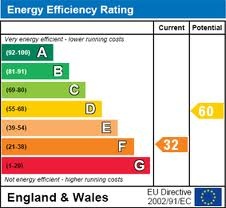In June this year the European Commission published the draft ‘Energy Efficiency Directive’, which is now open for consultation until the end of September.
The draft legislation lays out the framework to achieve the EU’s target of 20 per cent reduction in carbon emissions by 2020.

Further details on the proposals and the consultation process can be found on the Department for Energy and Climate Change’s (DECC’s) website.
DECC is currently encouraging stakeholders to participate in the consultation process, in the run-up to EU member state negotiations on the Directive commencing in the autumn.
On their website, DECC state that they would welcome any informal views, comments, or observations from the public or stakeholders on the content of the proposed Directive and its annexes. They are especially interested in receiving views with regards to the costs and benefits associated with the proposals.
In regards to the public sector, the Directive outlines a number of proposals that would have significant implications for public bodies over the coming years.
Article 4 addresses these proposals:
- “Member States are to ensure that, as from 1 January 2014, 3% of the total floor area of buildings over 250m2 owned by public bodies is renovated annually to meet at least the minimum energy performance requirements set in current building regulations.
- “Member States will be required to establish and make publicly available an inventory of buildings owned by public bodies detailing the energy performance of each building.
- “Public Bodies must be encouraged to adopt and implement energy efficiency plans and energy management systems.”
Article 5 addresses sustainable procurement by the public sector:
- “Public bodies will be required to meet high energy efficiency standards when procuring energy-using products, IT equipment, tyres, buildings and services from third-party providers.”
As these proposals have significant and fairly onerous implications for the public sector in sustainability and carbon reduction planning and projects, we would be interested in hearing how organisations feel the plans would affect them.
- Are the changes a positive legislative step by requiring concrete and specific action?
- Do you think the proposals will help your organisation achieve real carbon reductions at an acceptable cost?
- Can you foresee any practical barriers or unintended consequences arising?
